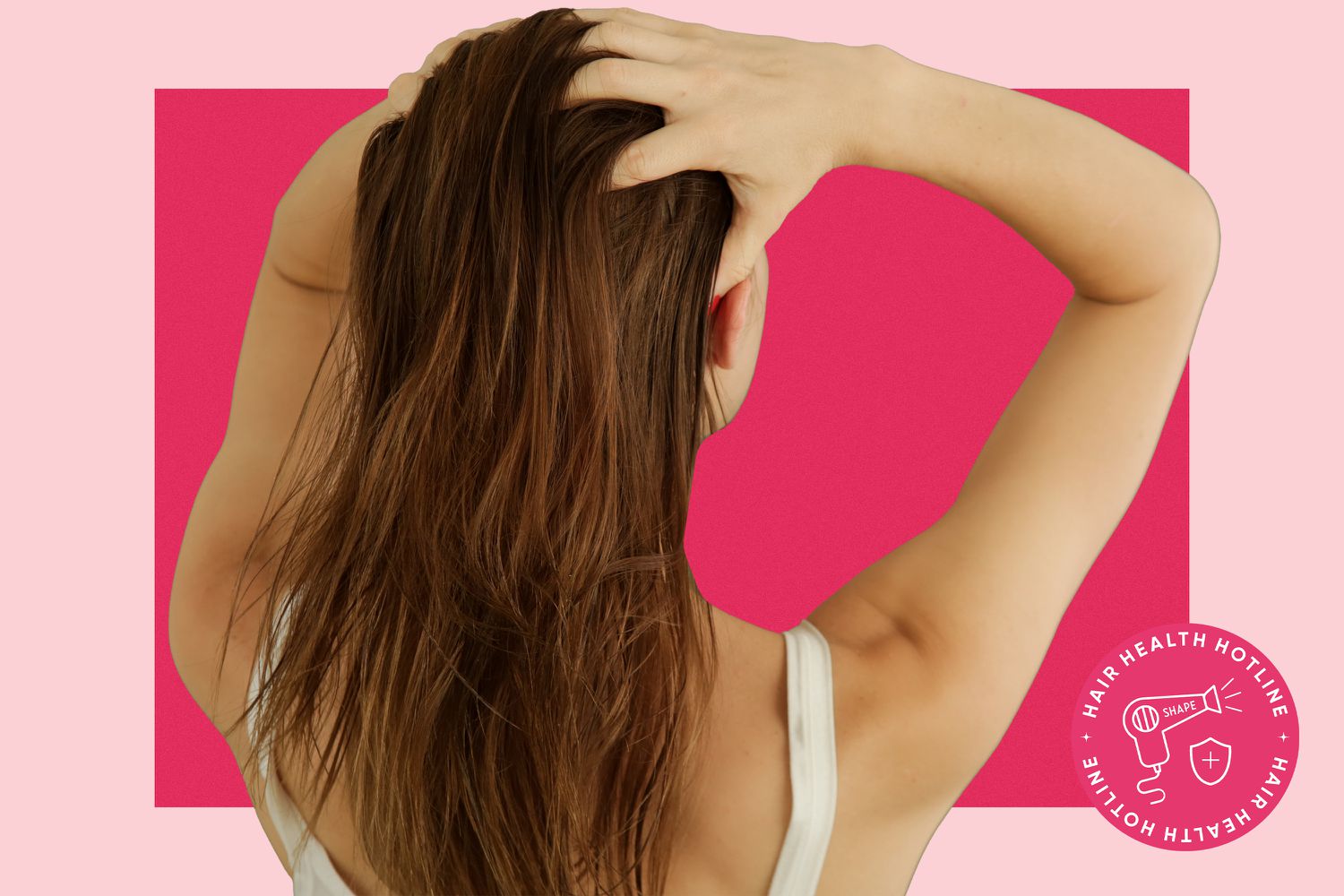Dermatologist's Advice on Preventing an Itchy Scalp

Hair Health Hotline is your direct access to dermatologists, trichologists, hairstylists, and other beauty pros. Each story in this series tackles a common hair or scalp concern and offers science-backed solutions to care for your strands.
There's nothing quite like the nagging, relentless sensation of an itchy scalp. We've all been there. That incessant itch sends your fingers dancing up to your scalp more often than you'd like. Whether subtly scratching during a Zoom call or going all out when no one's watching, an itchy scalp can turn from a minor irritation to a major disruption in your day-to-day life. It can be as distracting as a fly buzzing around you while trying to concentrate.
The good news is you're not alone, and most importantly, you're not without solutions to mend your itchy scalp woes. But why does it happen? Is it your new shampoo? A silent sign of stress? Or perhaps something more serious lurking underneath, like psoriasis? The quick answer is it could be all of the above and more. In this article, we will shed light on the possible reasons behind your itchy scalp and provide some potential solutions. With insights from Dr. Anna Chacon, a Miami-Based board-certified dermatologist and Dermatologist Writer for MyPsoriasisTeam, we'll explore the common culprits and recommended treatments, helping you reclaim your peace and sanity
A: The first step to solving our itchy mystery is identifying the potential culprits, says Dr. Chacon. 'An itchy scalp, also known as scalp pruritus, can be triggered by several factors,' she tells SHAPE. For example, dandruff and seborrheic dermatitis, which occur due to yeast overgrowth on the scalp, is among the most common causes of itching and flaking. It's no surprise that the white flakes that often accompany our itchiness are a telltale sign of these specific conditions.
However, not all triggers are quite as common, though. Dr. Chacon points out that psoriasis, an autoimmune condition causing a buildup of red, itchy, and scaly patches on the scalp, can also lead to an uphill battle with itchiness. Additionally, there's contact dermatitis, an allergic reaction, or irritation generally associated with hair products such as your favorite hair dye or shampoo. And if it feels like bugs are having a party on your head, it might be time to check for head lice.
For those who enjoy experimenting with hair products, it can be a bitter pill to swallow when we realize these might worsen our itchy scalp. Certain ingredients like sulfates, parabens, alcohol, synthetic fragrances and dyes, and propylene glycol can provoke itchiness, especially for those of us with sensitive skin or pre-existing scalp conditions. Dr. Chacon emphasizes the importance of being an informed consumer. 'Read product labels and know what to look out for,' she advises highlighting the below precautions.
'If you notice any of the above-listed ingredients, particularly in the first few listed on the label (indicating a higher concentration), you may want to consider alternative products. For individuals with sensitive skin or those prone to scalp irritations, opt for products labeled as hypoallergenic, sensitive skin, or all-natural. However, it's still important to check the ingredient list, as these labels can sometimes be misleading.' Chacon further explains.
If you're venturing into the territory of a new product, it's wise to conduct a patch test first, Dr. Chacon suggests. Smear a tiny amount of the product onto a small area of skin on the inside of your arm and let it sit for a full day. If you experience any irritation or itching in that area during the 24 hours, it's a clear signal your skin might not react well to the product.
But the reasons behind an itchy scalp aren't always so obvious. Our environment can also play a role. Dry climates, pollution, and hard water can all exacerbate an itchy scalp. Additionally, it's important to remember stress isn't just a mental state—it can worsen physical discomforts like scalp itchiness, too, Dr. Chacon warns.
A: It's easy to feel desperate for relief when dealing with an itchy scalp. And that relief can come in various forms, as Dr. Chacon tells us. Medicated shampoos, topical steroids, antihistamines, and antibiotics or antifungal treatments can help, she shares. Below are the most common treatments for itchy scalp, according to Dr. Chacon.
Medicated Shampoos: Specialized shampoos containing ingredients like ketoconazole, zinc pyrithione, selenium sulfide, coal tar, and salicylic acid can help manage conditions like dandruff, seborrheic dermatitis, and psoriasis.
Topical Steroids: These are creams or ointments that can reduce inflammation and alleviate itching. They're often prescribed for cases of psoriasis or severe seborrheic dermatitis.
Antihistamines: If your scalp itchiness is related to an allergic reaction, antihistamines can be your best friend, as they help control itching.
Antibiotics or Antifungal Treatments: In some cases, a bacterial or fungal infection might be causing the itchiness. For these scenarios, doctors may prescribe antibiotics or antifungal treatments.
While these treatments can be quite effective, Dr. Chacon notes they might have side effects. Medicated shampoos could cause dryness or irritation, topical steroids need to be used sparingly to avoid skin thinning, antihistamines could lead to drowsiness, and antibiotics or antifungal treatments might cause an upset stomach, for example. Always follow your healthcare provider's advice when using these treatments.
A stitch in time saves nine, and a proper routine could save you from relentless scalp itchiness. Regularly shampooing your scalp helps remove potential irritants, while choosing hypoallergenic, fragrance-free, and gentle hair products can prevent further irritation. But good scalp health doesn't stop at haircare. Dr. Chacon advises. Drinking plenty of water, eating a balanced diet, and managing your stress levels can also relieve an itchy scalp and promote scalp health. These seemingly simple steps can go a long way in keeping your scalp healthy.
Despite our best efforts, sometimes the itch just won't go away. In that case, it might be time to call in the professionals. 'If your scalp itchiness persists for more than a week, is severe, or is accompanied by symptoms such as hair loss, sores, or a rash, it's time to seek professional help,' Dr. Chacon advises. Don't ignore the itch—reach out to a dermatologist who can help you get to the root of the problem.
Remember, our bodies are always communicating with us. Ignoring an itchy scalp can be like trying to silence a fire alarm while the fire is still raging. Listen to your body, respond to its needs, and enjoy the relief of living itch-free!
Have a hair health question you want answered? Send your Q to [email protected] for a chance to have it featured in a future installment of Hair Health Hotline.




